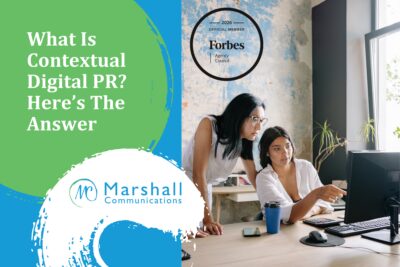Remember when many thought social media would make earned media obsolete? Or when they thought digital marketing would get rid of public relations? Or how about ChatGPT taking Google’s business?
In today’s day and age of never-ending technological innovation, it is easy to get excited about breakthroughs—new products and services that make work better or life cooler. It is just as easy to get carried away, thinking that something will make that other thing disappear. But that isn’t necessarily the case.
As PR professionals, we should keep track of the changing landscape so we can adjust our strategies and tactics accordingly. But we should never put all of our eggs in one basket. After all, there are a lot of baskets.
Two things can be true: Cable news is still popular, but independent podcasts matter more than ever before. The same is true of Google Search and ChatGPT, which are both relevant.
Google vs. ChatGPT: A Changing Search Landscape
Let’s crunch the numbers: According to a survey of 1,000 people in December 2024, Google was the top search provider for 78% of respondents, while 5% said their first choice was ChatGPT. This is a fivefold increase for ChatGPT from June 2024, but it’s still way behind Google.
ChatGPT is gaining ground though, especially among millennials. Given that the millennial generation is the largest in the U.S. workforce, ChatGPT adoption in this age bracket likely matters a lot to OpenAI and other Google competitors.
ChatGPT searches are also well-received by many users. When it comes to conversational (and ad-free) responses, AI is probably your go-to, whereas Google is ideal for comprehensive search results that introduce a wide range of text, images and sources. There are strengths and weaknesses on both sides.
The bottom line is that search has changed profoundly in recent months, and it will continue to change throughout 2025. As Google, ChatGPT and others compete for eyeballs, we can expect certain tweaks to search engine results for better, more informative content presentation.
Why Searchability Still Starts with PR
Still, the rules for PR remain very much the same. First, searchability matters. Personal branding and reputation management are inextricably linked with what pops up based on a search query—whether it’s a website, a Wikipedia page, a social media account or a negative story in the New York Times. Favorable or unfavorable, search engine results inevitably shape the perceptions of individuals and organizations, and that’s where PR comes into play. Whether it means generating a new story about a client, updating a website with fresh blog posts or turning a LinkedIn page into an opportunity for thought leadership, dictating what pops up on the first page is possible, at least to an extent.
This logic applies to Google and ChatGPT. Remember: ChatGPT is an AI language model that draws information from a variety of sources that are present in Google Search too. Examples may include, but are not limited to, Wikipedia, news stories, interviews, books and scientific journals. The higher the domain authority of the sites that include references to your topic, the better the information that ChatGPT produces. AI isn’t just pulling information out of thin air; it comes from somewhere, and PR can shape the sources that lay the foundation for language models to do their job.
So, pitch a profile piece about your client. Get their op-ed placed in a national publication. Secure interviews with YouTube and Spotify podcasters. Create a new website with more dynamic, refreshable content—videos, blogs and integrated social media posts. When you secure earned media, promote it on social media too. Make sure that you update all of your digital platforms daily, or several times a week at the least. Have part of your brand be “activity”—that is, actually being active online.
All of these rules still apply. If you check these boxes, your searchability will improve, whether people are searching on Google, ChatGPT or wherever else.
On the flip side, if you aren’t checking those boxes, your search engine results could suffer, and you probably won’t be happy with the AI response when it tries to create content out of thin air.
Adapting to the New Frontier of AI
Improving searchability—also known as Google search engine optimization (SEO)—starts with awareness, and that means monitoring an evolving landscape. For one, the terminology “Google SEO” now needs to be broadened to incorporate AI into the equation. Google Search isn’t the be-all and end-all anymore, so Google SEO alone is too limiting.
The new year is a new frontier, but we have no reason to worry if we continue to do the hard work for our clients and prioritize searchability. We just can’t ignore what’s happening in front of us. When times change, we have to change too.
This article originally appeared on the Forbes Agency Council CommunityVoice in March 2025.












